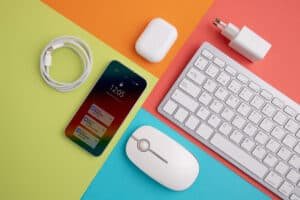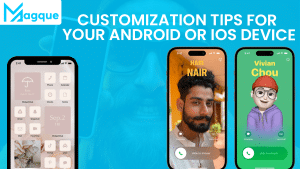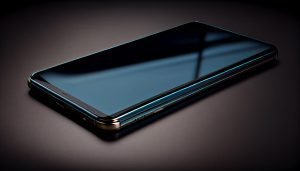In today’s fast-paced digital world, our smartphones have become extensions of ourselves. They hold our secrets, our memories, and our connections. But as we rely more on these pocket-sized marvels, our privacy becomes increasingly vulnerable. So, let’s dive into smartphone privacy concerns and arm ourselves with the knowledge to protect what matters most.
The Digital Age Dilemma
Imagine your smartphone as a treasure chest filled with personal information – your location, contacts, messages, and browsing history. Now, think about all the apps and services you use daily. Each one requests access to specific data; many may not have your best interests at heart.
Perplexed? You’re Not Alone
Smartphone users often need clarification on the number of privacy settings and permissions. Why does that flashlight app need access to your microphone, anyway? These perplexing privacy settings can leave us feeling overwhelmed and powerless.
But fear not! Understanding the basics can make a world of difference.
The Bursting Bubble of Privacy
Privacy breaches make headlines regularly, and the bubble of smartphone privacy can burst without warning. Whether it’s a data breach or a malicious app, your personal information can end up in the wrong hands.
Ask Yourself: What Are You Sharing?
We share a lot on our smartphones. From location data to photos and messages, it’s all there. But it’s essential to question what we’re sharing and with whom. Take a moment to review your app permissions and consider if they align with your comfort level.
The Guardians of Privacy
Thankfully, you’re not alone in this battle for smartphone privacy. There are steps you can take to protect your digital fortress.
- Stay Updated: Ensure your smartphone’s operating system and apps are current. Developers often release patches to fix security vulnerabilities.
- App Permissions: Review and manage app permissions regularly—Disable unnecessary access to your data.
- Biometric Security: Unlock your phone using biometric authentication methods like fingerprints or facial recognition. They provide an extra layer of security.
- Strong Passwords: Set strong, unique passwords for your accounts and consider using a password manager.
- VPN Protection: Use a Virtual Private Network (VPN) to encrypt your internet connection, especially on public Wi-Fi networks.
- Two-Factor Authentication: Enable two-factor authentication wherever possible to add an extra security barrier.
Conclusion: Take Control of Your Digital Destiny
Your smartphone is a powerful tool but also a potential minefield for privacy concerns. By staying informed, taking control of your settings, and following best practices, you can confidently navigate this digital world. Protect your privacy, and your smartphone will remain a trusted companion in your everyday life. And be sure to explore Magque, your go-to source for the latest and most intriguing updates in the realms of informative tips & reviews!
FAQs
Q1. What are the main privacy concerns with smartphones?
Smartphone privacy concerns include:
- Data breaches.
- Unauthorized access to personal information.
- Location tracking.
- The collection of sensitive data by apps and services.
Q2. How can I protect my smartphone from privacy breaches?
To protect your smartphone, keep your software and apps updated, review and manage app permissions, use strong passwords or biometric authentication, and consider using a Virtual Private Network (VPN) for secure browsing.
Q3. Do all apps on my smartphone access my data?
No, not all apps have access to your data by default. You can control app permissions and choose which apps can access specific data such as your location, contacts, or camera.
Q4. What should I do if my smartphone is lost or stolen?
If your smartphone is lost or stolen, immediately report it to your mobile provider and the local authorities. Use features like “Find My Phone” to track or lock your device remotely and change account passwords.
Q5. Is it safe to use public Wi-Fi networks on my smartphone?
Public Wi-Fi networks can be risky as they may expose your data to potential hackers. Using a VPN while connected to public Wi-Fi can encrypt your internet connection, adding an extra layer of security for your smartphone.
Read Also This:- Smartphone Privacy: Protecting Your Personal Data













